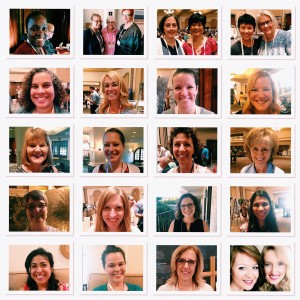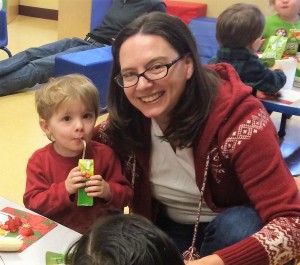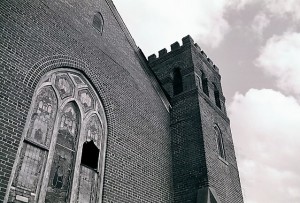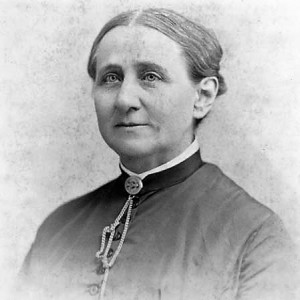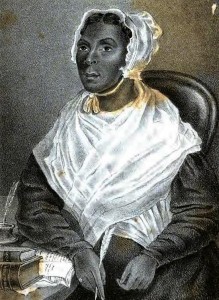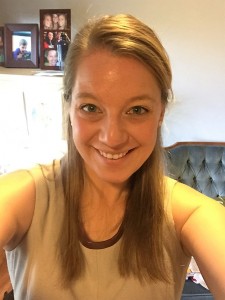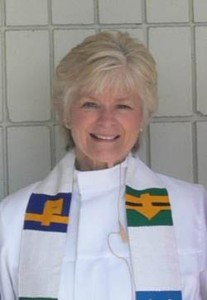Ellie VerGowe is currently serving as Ministerial Resident for Community Outreach at First Covenant Church on Capitol Hill in Seattle. Ellie enjoys dancing, being outside and reading a good book on a rainy day with a friend and a cup of tea.
 From the moment my parents met in a mountaineering class, my future was determined. My sister and I would be outdoor people.
From the moment my parents met in a mountaineering class, my future was determined. My sister and I would be outdoor people.
My parents encouraged my sister and I to hike and enjoy the beauty of God’s creation around us. I grew up being outside as often as our family was free to do so and though we may have complained a little about our camping trips in our junior high years, wilderness was in our blood. We couldn’t help it.
When I got to seminary, I took the “Wilderness and Faith” class taught by professors Michelle Clifton-Soderstrom, Jim Bruckner and Phil Anderson and found myself feeling so at home. We discussed together two things I deeply loved: God and creation. And in the middle of it all, as we canoed together over the mostly calm, but sometimes choppy waters of the Flambeau River in Wisconsin, I saw the wildness of creation…in the waves and currents that tipped over our canoes…in the wind in the trees…and in the giant bonfire that we built as Jim recited poetry to us.
But as much as the wilderness was home, I felt…somehow…not a part of what was happening. I felt less than majestic as I commented on the theological readings that we discussed over the course of the trip. I was so aware of what I didn’t know and I felt that I couldn’t speak as eloquently as so many in our class did. The mountains I had seen in my life were big, but I had been kept small over the years. The trees were warped, knotted and unique as weather shaped them, but I took to heart society’s expectation that I always be nice, always look a certain way and always fit into people’s expectations of what a woman was supposed to be. The waters and the trees and the wind were wild and excellent…but was I?
This seems to be a pattern in my life and in the lives of so many women I know. We are taught to think less of ourselves and our ideas. The world around us does the same to us. Many churches we know don’t allow us to preach the gospel. When we state our ideas, some of our brothers interrupt us or summarize what we say, implying that what we said wasn’t good enough the first time. We are told to follow and not lead, though we have the experience, the skills and the calling. Sometimes we women inadvertently take these things to heart. We think to ourselves: “Why would I speak up if my thoughts are so different from what has already been spoken? Maybe I am wrong in my assessment of what is going on. Maybe I am not good at this…maybe I am not called to what I think God is asking me to do.” Sometimes my thoughts (and I hear it in so many of my female friend’s stories too) spiral into dangerous territory of doubting the ways that God has created me.
But a colleague recently gave me a quote by author Ursula K. Le Guin that turns all of these lies on their heads. It says:
“I know that many men and even women are afraid and angry when women do speak, because in this barbaric society, when women speak truly, they speak subversively—they can’t help it: If you are underneath, if you’re kept down, you break out, you subvert. We are volcanoes. When we women offer our experiences as our truth, as human truth, all the maps change. There are new mountains. That’s what I want—to hear you erupting. You young Mt. St. Helenses who don’t know the power in you—I want to hear you…Speak with a woman’s tongue. Come out and tells us what time of night it is! Don’t let us sink back in silence.”[1]
These words resonated deeply in my nature-loving soul. The wildness of a volcano, the vastness of a mountain glacier…these are strong. They burst into song and in their very being, they tell of the glory and goodness of God. With their own voices and in their own unique and majestic ways, the mountains and rivers and trees and oceans proclaim God’s presence among us. I’ve seen others do this…from the Black Lives Matter activist who works and shouts until her voice is hoarse that violence towards black and brown bodies must stop, to the artist who paints in defiance against the chronic pain she suffers. I learn from them. So many women I know are doing this already and are leading the way, but we can all do the same. We MUST do the same…in our own ways…in the ways that God has created us. We need the voices of women to tell the truth in ways that aren’t heard as often or as loud as male voices in our broken world.
And while we are telling truth in the ways that we are made, we recognize that it can be terrifying, wild and unpredictable to patriarchy. While the destruction that comes from mountains exploding is awful and while we don’t want to leave destruction in our wake, we too are wild. We too are are called to be fully ourselves with our erupting voices that image God and that aren’t unlike powerful mountains. While listening is imperative and necessary (we all have much to learn and we must listen to each other), maybe some of us need permission to erupt.
So, my sisters: don’t be quiet. Erupt with the truth. Tell the gospel as you live fully into who YOU are created to be. Do justice with your words and actions. Love mercy with your words and actions. And as you erupt, erupt with humility, knowing the one who created us also loves us and continues to teach and shape us into the people we have been created to be.
[1] 1986 Bryn Mawr College Commencement Address

